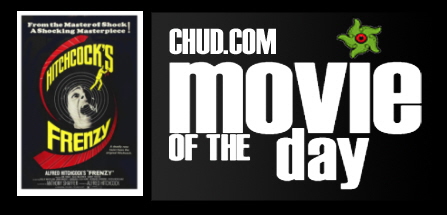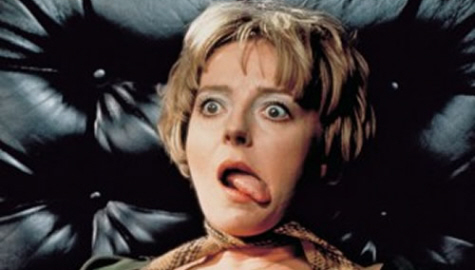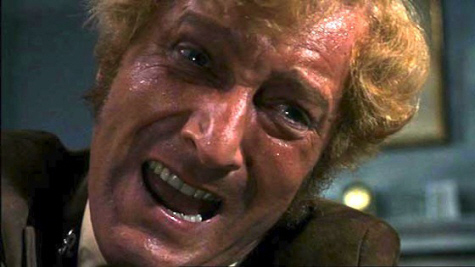
The Film: Frenzy (Buy it from CHUD!)
The Principles: Alfred Hitchcock (director), Barry Foster, Jon Finch, Alec McCowen, Barbara Leigh-Hunt, Billie Whitelaw, Anna Massey
The Premise: A delightful romp about serial murder, mistaken identity, and neck ties. Frenzy, Hitchcock’s penultimate film, served as a return to form and is looked upon today as one of his seminal works.
Bob Rusk (Barry Foster) is a serial murderer in 1977 London, getting his kicks strangling women with neck ties. Rusk crosses paths with poor Dick Blaney (Jon Finch) who, after Rusk murders both Blaney’s ex-wife and current ladyfriend, becomes suspect numero uno in the crimes. In time the investigator, Chief Inspector Oxford, begins to suspect he’s captured the wrong man. It sounds rudimentary. The beauty of Frenzy is how it’s anything but.

The face your girlfriend makes when she watches The Bachelor.
Is It Good: Oh, it’s quite charming. The film’s cheeky tone works twofold. First, it separates Frenzy from other films with similar subject matter. Second, Hitchcock presents Foster’s serial killer as an endearing, roguish bloke. Hitchcock, using the audience’s affectation for the killer, is able to create tension in some truly spectacular ways.
Is It Worth A Look: Most certainly. A few scenes stick out, but my favorite has to be the infamous lapel sequence. Rusk comes close to being caught in an effort to regain his lapel from the clutches of his dead victim. Hitchcock brilliantly frames it through Rusk’s own perspective – building the tension higher and higher as the killer struggles to keep his freedom intact. It’s one of the great “Hey, wait a god damn minute!” moments of cinema, as you realize you’ve been sympathizing for a mad man who should get caught.
The chief inspector’s relationship with his wife is also noteworthy, as Vivien Merchant’s Mrs. Oxford serves as a fabulous foil for her husband. The case is solved not in a crime lab, but over tea and crumpets with two gingerly old folk.
The final moments of the film are among the most satisfying of Hitchcock’s career. Just when you think the film’s about to end on a cynical note, Hitchcock changes direction and lands a moment that’s perfectly in line with the tone of the film. In the scene, Oxford’s able to deliver one of my favorite lines in any film, ever.

Foster as Hitchcock's maniacal, lovable creepster.
Random Anecdotes: The film continues Hitchcock’s penchant for putting young, attractive blondes in situations of distress. Still, screenwriter Anthony Shaffer was able to convince Hitchcock that filming murder would become redundant and bog down the film. Despite the subject matter, only one murder is depicted on screen.
Cinematic Soulmates: Psycho, Vertigo, Dial M for Murder, Henry: Portrait of a Serial Killer, Clay Pigeons